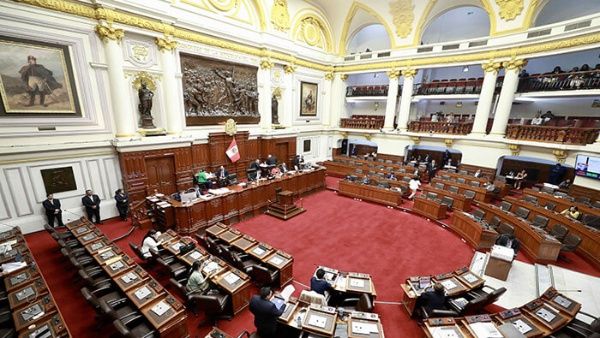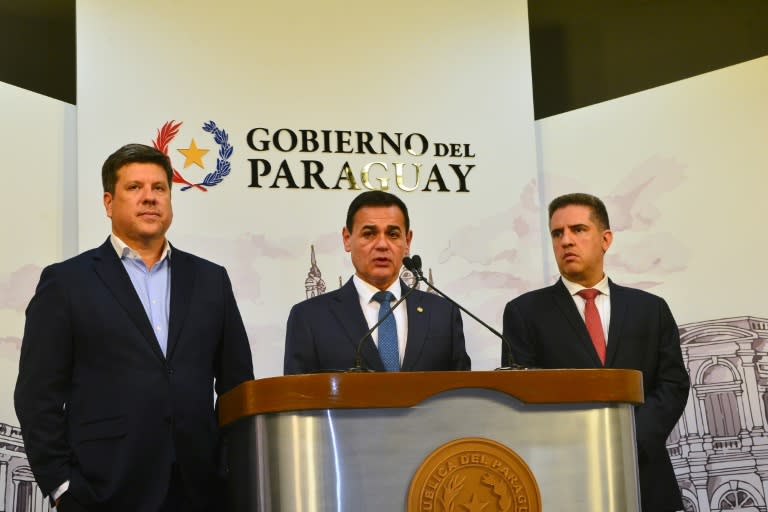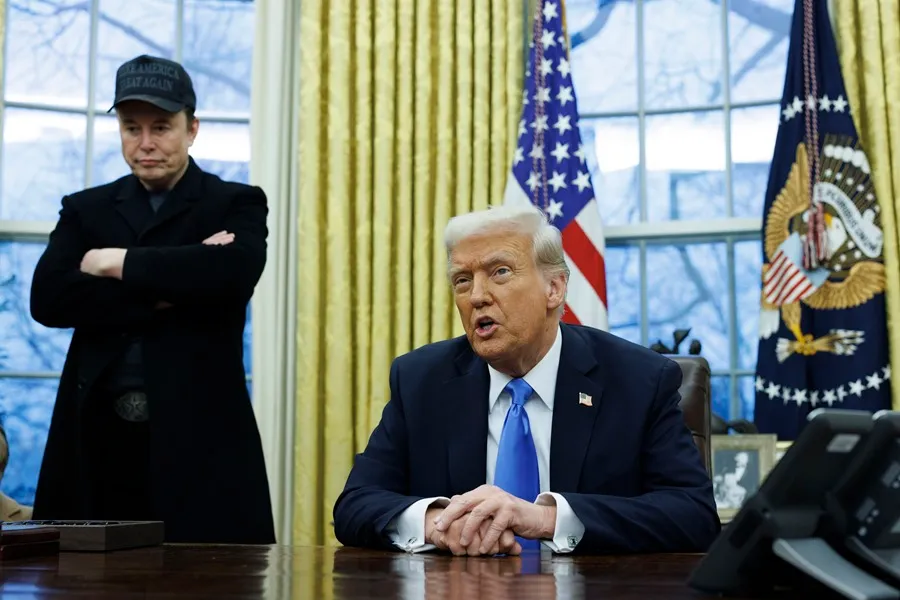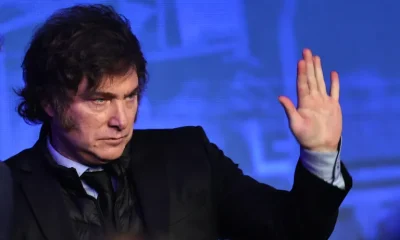International
Peruvian Congress approves to debate again on electoral advancement

18 février |
The Peruvian Congress approved on Friday the possibility of debating again projects for the advancement of presidential elections, which is one of the main demands of the protests and social mobilizations in much of the country.
With 69 votes in favor, 35 against and 7 abstentions, the Plenary of Congress authorized the Constitution Committee to debate future projects related to the advancement of general elections and the consequent shortening of the presidential and congressional mandate.
The President of the Congress, José Williams, clarified that the measure authorizes the issue to be discussed in the annual session and that there is no project that can be presented at this time before the legislators.
After the approval by the majority of the congressmen, the president of the Constitution Committee will have to urgently convene the members of its working group to analyze any new project to bring forward the elections.
To date, there are at least a dozen proposals that propose the anticipation of the general elections for July, October or December 2023 as well as for April 2024.
Early elections is one of the main demands of the anti-government protests that began in various parts of the country since the beginning of last December and which have left at least 70 people dead due to the repression of the security forces to the mobilizations.
International
Javier Milei vows to work ‘side by side’ with the U.S. on trade rules

Determined to work “side by side” with the United States, Argentine President Javier Milei announced in Mar-a-Lagothat his government will modify trade regulations to meet the requirements of Donald Trump’s newly imposed tariffs.
Milei arrived in Florida amid the trade war triggered by the latest round of tariff hikes announced by the Republican leader. While many countries are considering retaliation, Milei’s ultraliberal Argentina has opted to adapt instead.
“Argentina will move forward in adjusting its regulations to comply with the reciprocal tariff proposal drafted by President Trump,” Milei stated at the Gala of American Patriots, organized by the Make America Clean Again (MACA) Foundation and the We Fund the Blue NGO, according to his office.
He further explained that Argentina has already met nine out of the 16 necessary requirements and has instructed his administration to comply with the remaining ones in order to resolve trade asymmetries with the U.S. in a short time frame.
International
Paraguay summons Brazilian ambassador over Itaipú espionage scandal

Paraguay summoned the Brazilian ambassador in Asunción on Tuesday to demand “explanations” and called its own representative in Brasília for consultations following Brazil’s acknowledgment of an espionage operation. The Brazilian government, led by President Luiz Inácio Lula da Silva, attributed the operation to the previous administration.
The surveillance effort aimed to uncover Paraguay’s position in now-suspended negotiations with Brazil regarding the pricing of electricity from the binational Itaipú hydroelectric plant, according to reports in the Brazilian press.
The Brazilian government “categorically denied any involvement in the intelligence operation,” stating in a Foreign Ministry communiqué on Monday that the espionage was carried out under former President Jair Bolsonaro’s administration (2019-2023).
“The operation was authorized by the previous government in June 2022 and was annulled by the interim director of the (state intelligence agency) ABIN on March 27, 2023, as soon as the current administration became aware of it,” Brazil’s government asserted.
Paraguay’s Foreign Minister Rubén Ramírez announced that Brazilian Ambassador José Antonio Marcondes de Carvalho was summoned “to provide detailed explanations” regarding the operation. Additionally, Paraguay recalled its diplomatic representative in Brasília “to report on aspects related to the intelligence activity conducted by Brazil regarding Paraguay’s government affairs.”
International
Elon Musk to step down as government advisor, per Trump insiders

President Donald Trump has informed his inner circle that Elon Musk will be stepping down from his role as a government advisor, according to a report by Politico today.
Citing three individuals close to Trump, Politico states that the president is pleased with Musk’s leadership at the Department of Government Efficiency (DOGE), where he has implemented significant budget cuts. However, both have agreed that it is time for Musk to return to his businesses and support Trump from a different position outside the government.
A senior administration official told Politico that Musk will likely maintain an informal advisory role and continue to be an occasional visitor to the White House. Another source warned that anyone thinking Musk will completely disappear from Trump’s circle is “deluding themselves.”
According to the sources, this transition is expected to coincide with the end of Musk’s tenure as a “special government employee,” a temporary status that exempts him from certain ethics and conflict-of-interest regulations. This 130-day period is set to expire in late May or early June.
-

 International3 days ago
International3 days agoParaguay summons Brazilian ambassador over Itaipú espionage scandal
-

 Sports3 days ago
Sports3 days agoFilipe Luis debuts as coach in Copa Libertadores with Flamengo
-

 Central America3 days ago
Central America3 days agoGuatemalan police officer killed in mob riots over baby kidnapping
-

 International3 days ago
International3 days agoElon Musk to step down as government advisor, per Trump insiders
-

 Sports3 days ago
Sports3 days agoVenezuela investigates 18 baseball players seeking asylum in Spain
-

 International3 days ago
International3 days agoÓscar Arias: Trump’s trade policies are a step backward
-

 Central America1 day ago
Central America1 day agoPanama’s former president Martinelli claims political enemies tried to kill him
-

 International3 days ago
International3 days agoMilei vows to make Argentina so strong that Falkland Islanders “choose” to join
-

 International1 day ago
International1 day agoJavier Milei vows to work ‘side by side’ with the U.S. on trade rules
-

 International3 days ago
International3 days agoICE agent’s arrest of suspect sparks controversy in Boston















